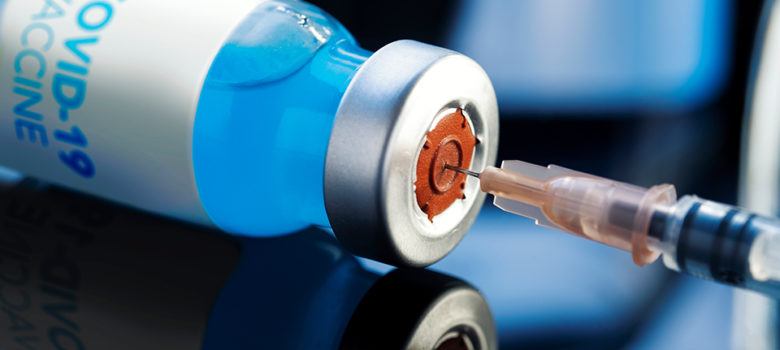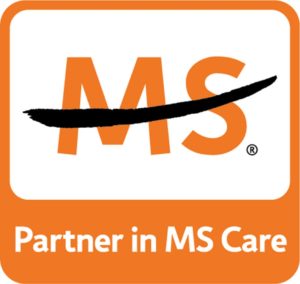

Multiple Sclerosis and COVID-19 Vaccines
by Barbara Giesser
March is National Multiple Sclerosis Awareness month.
When the COVID-19 pandemic first emerged, there were many questions about how persons with Multiple Sclerosis (MS) would be affected. Now a year later, we have answers to some of those questions, and other issues that have yet to be well defined.
Multiple Sclerosis (MS) and COVID-19
An international registry of persons with Multiple Sclerosis and allied demyelinating diseases who contracted COVID-19, the COViMS database, was established in 2020 at the beginning of the pandemic. To date approximately 2500 cases have been reviewed and the results from this database and other studies indicate that just having MS in and of itself does not appear to pose an increased risk for getting COVID-19, or having a more severe case of it.
The risk factors for serious illness, hospitalization or death from COVID-19 for persons with MS are very similar to that of the general population i.e. age, obesity, ethnicity, disability, gender and co-existing medical conditions such as diabetes, heart or lung disease.
Many of the MS disease modifying therapies (DMT) also do not appear to confer increased risk from COVID-19. Some DMT, including the so called “B cell depletors” (ocrelizumab, rituximab, ofatumumab) may be associated with increased risk of severe COVID infection.
Different types: How the COVID-19 vaccines work
Two of the currently FDA-approved COVID-19 vaccines in the US, one made by the company Pfizer/BioNTech, and the other by Moderna, both use mRNA. mRNA is a small piece of genetic material that contains instructions for building a protein (the spike protein) that the coronavirus uses to attach to cells.
mRNA COVID-19 vaccine
After an individual receives an mRNA vaccine, the mRNA tells their cells to make the protein. Since it is of viral origin and thus “foreign”, the body’s immune system makes antibodies to it. When the actual virus tries to infect the person’s cells, the antibodies bind to the protein on the virus and prevent it from being able to attach to the cell and infect it.
Other types of immune cells also become able to recognize and attack virus-infected cells. Both the Pfizer/BioNTech & Moderna vaccines have 94-95% effectiveness in preventing clinically symptomatic COVID-19 infection, and 100% effectiveness in trials in preventing death from COVID-19.
Janssen/Johnson & Johnson DNA vaccine
The most recently approved COVID-19 vaccine, which is made by Janssen/Johnson & Johnson, is different in that it uses DNA to code for a viral protein, and the DNA is delivered to the cells by an inactivated virus instead of being wrapped in a small fat bubble, as is the case for the Pfizer and Moderna preparations. This virus belongs to the same family as the common cold virus but has been altered so that it cannot spread or cause an infection. Once inside the cell, the DNA then gets transcribed to mRNA which tells the cell’s protein-making machinery to make the virus protein.
The J&J vaccine was shown to have 72% effectiveness in preventing symptomatic disease (in the US), 85% effectiveness in preventing severe or critical illness, and in the clinical trial, prevented 100% of hospitalizations or death starting 28 days after vaccination. Part of the reason for the slightly different efficacy results noted between the J&J and the earlier vaccines is thought to be that the J&J clinical trials occurred when new variants of the COVID-19 virus had begun to spread.
Vaccine safety for Multiple Sclerosis (MS)
The National MS Society (NMSS) has assembled a panel of experts to review the existing data and they have formulated general recommendations about persons with Multiple Sclerosis and the COVID-19 vaccines. All three currently approved COVID vaccine preparations are thought to be safe and effective for persons with MS, and persons with MS should be vaccinated when the vaccine is available to them.
However, those who have had a severe allergic reaction to a vaccine in the past are advised to consult first with their primary care physician. To date, there is no evidence that the COVID-19 vaccine will cause an MS relapse. However, if a person with MS develops a fever after vaccination, which can sometimes happen after any vaccination, they may experience a pseudoexacerbation, or temporary increase in symptoms that subsides when the fever is treated.
For patients taking some DMTs such as the ones listed above, and other immunosuppressive therapies (fingolimod, siponimod, ozanimod, cladribine, alemtuzumab), the efficacy of the vaccine may be reduced, and the timing of administration of DMT may have to be adjusted according to when someone may be vaccinated. For example, persons with Multiple Sclerosis who are on B cell depletors should wait at least 2- 4 weeks between completing COVID-19 vaccination and starting or resuming their infusion or injection. The NMSS website contains their full statements about COVID-19, the COVID-19 vaccines, and MS. More recommendations will be forthcoming as other vaccine preparations are approved and more data are available.
A small amount of data suggests that some persons with Multiple Sclerosis who contracted COVID-19 and who had received steroids in the preceding 30 days, seemed to have a more severe COVID-19 course. If steroids are needed to treat a relapse, this decision should be weighed against other possible risks. It is also suggested to delay vaccination until 3-5 days after receiving a course of steroids.
Following safety protocols
All persons with MS should continue to practice CDC guidelines for social distancing, mask wearing and hand washing, even after they have been vaccinated. The most recent CDC guidelines say that fully vaccinated persons may gather indoors without masks or social distancing with other vaccinated persons, or unvaccinated persons in the same household who have low risk of having COVID-19. To get information about availability of COVID vaccine where you live, check your healthcare network, local public health department website, and the CDC website for COVID-19 and COVID-19 vaccine information.
Multiple Sclerosis treatment

The MS program at Pacific Neuroscience Institute is recognized as a “Partner in MS Care” of the National MS Society.
Clinic: 310-582-7613 | PacificNeuro.org/MS
About the Author

Barbara Giesser
Barbara S. Giesser, MD, FAAN, FANA, is an internationally recognized clinician and award-winning educator who has specialized in the care of persons with Multiple Sclerosis since 1982. Her approach to the diagnosis and management of persons with MS combines advanced diagnostics and a personalized medication plan for each patient with an emphasis on integrating lifestyle and wellness strategies into the neurologic treatment plan.
Last updated: July 5th, 2025